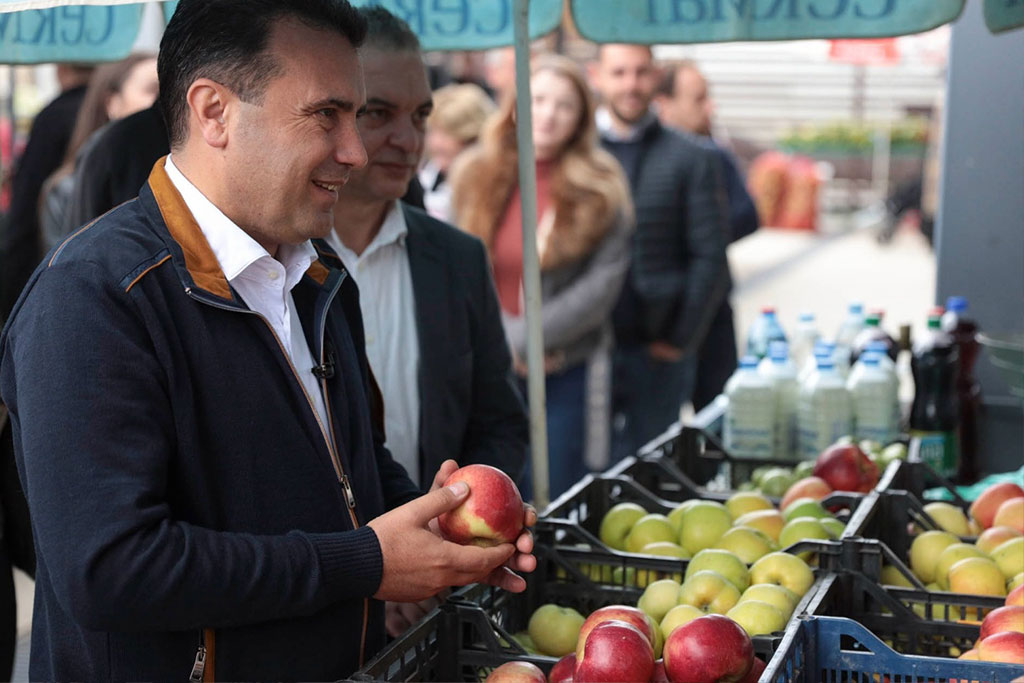The "ZAEV Food Bank" program aims to combat poverty and hunger by collecting surplus food, storing it, and distributing it to socially vulnerable individuals. In coordination with the activities of the "ZAEV Public Health Awareness Program," this program will observe
ZAEV Food Bank 2023-24

16 and 17 October - World Food Day and International Day for the Eradication of Poverty
Celebrating World Food Day on 16 October, to mark the anniversary of the founding of the Food and Agriculture Organisation (FAO) of the United Nations and celebrating International Day for the Eradication of Poverty on 17 October, declared by the United Nations General Assembly. By marking these days through this program of activities aimed at developing solutions in society, we will join the activities to achieve the Zero Hunger by 2030, as encouraged by the Food and Agriculture Organization of the United Nations. One of the previously mentioned solutions will be the implementation of the concept of “Community Fridges” at certain locations in the municipality of Strumica (urban/rural areas). The “Community Fridges” will store food/beverages from the market surplus (will be available to all food producers, distributors, traders and caterers who want to donate their market surplus food/beverages), as well as available to all citizens who want to donate food or leftovers from their meals/drinks daily.
18 June - Sustainable Gastronomy Day
Celebrating Sustainable Gastronomy Day on June 18, through the realization of activities with a focus on the importance of consuming healthy food. Having in mind that the municipality of Strumica has the soil and climate advantages for competitive agricultural production, promotional stands with healthy food will be opened. With the opening of these promotional stands, access to locally produced and fresh food by family farmers will be provided, where the local farmers themselves will be present for the promotion and sale of their products.
The program will be implemented through the following initiatives:
Organizing "Food drives" as charitable initiatives or events aimed at collecting and donating food products to individuals or families in need. Participants can contribute solutions to address global food insecurity and support those who struggle to afford or access healthy food. Additionally, implementing a "Campaign to Reduce Food Loss and Waste" will be integral to the program's environmental impact.
- Collaborating with local schools to involve students in the planned activities and educate them about the importance of helping and addressing global food insecurity;
- Encouraging participants to commit to specific activities, such as meal planning, proper storage, or composting;
- Monitoring and sharing the progress and impact of the campaign by highlighting collective efforts to reduce food waste;
- Recruiting volunteers to assist in collecting, sorting, and packing donated food products, ensuring efficient distribution to those in need;
- Establishing partnerships with local businesses or corporations to promote and support the activities. Companies can organize internal food drives among their employees, offering donations or financial support;
- Incorporating gamification elements into Food drives, such as setting donation goals and tracking progress on a virtual platform hosted on the Foundation's website. This approach aims to foster a competitive spirit among participants, motivating active and productive engagement.
Organizing "Nutritional Education Workshops" dedicated to promoting healthy eating habits and providing practical advice within budget constraints.
- Identifying suitable venues, such as local community centers or schools, to host the workshops;
- Inviting nutritionists or experts in the field of healthy eating to conduct informative and interactive workshops;
- Incorporating hands-on activities such as meal planning exercises, cooking demonstrations, or grocery shopping on a budget;
- Collaborating with local chefs to showcase cooking demonstrations focused on healthy recipes that utilize affordable ingredients.
Initiating the establishment of "Community Gardens" to enable participants to cultivate fruits, vegetables, and herbs, with the collected produce being donated in alignment with the program's planned activities. This initiative promotes self-sustainability and encourages healthy eating habits.
- Identifying available land or partnering with local schools to provide space for Community Gardens;
- Implementing practical gardening training to educate participants about sustainable gardening practices, including the provision of gardening tools, seeds, and necessary materials;
- Establishing a schedule for regular planting and cultivation of the "Community Gardens;"
- Coordinating with local food banks or community organizations to harvest and distribute the grown produce.
Organizing specially designed cooking classes for vulnerable communities, focusing on affordable, nutritious, and easy-to-prepare meals. Participants will have the opportunity to learn basic cooking skills and receive personalized recipe booklets.
- Collaborating with civil society organizations, social service providers, local community centers, or shelter centers to identify vulnerable communities and suitable venues for conducting cooking classes;
- Developing a program that encompasses basic cooking techniques, meal planning, and nutrition education. Volunteer chefs, gastronomy students, or nutritionists will lead the cooking classes;
- Providing participants with ingredients, cooking utensils, and personalized recipe booklets to support their learning journey and foster an inclusive environment where participants can learn from one another, building confidence in their culinary skills;
- Incorporating cultural diversity into cooking classes by preparing specialties from various ethnic cuisines, thereby supporting different culinary traditions.


